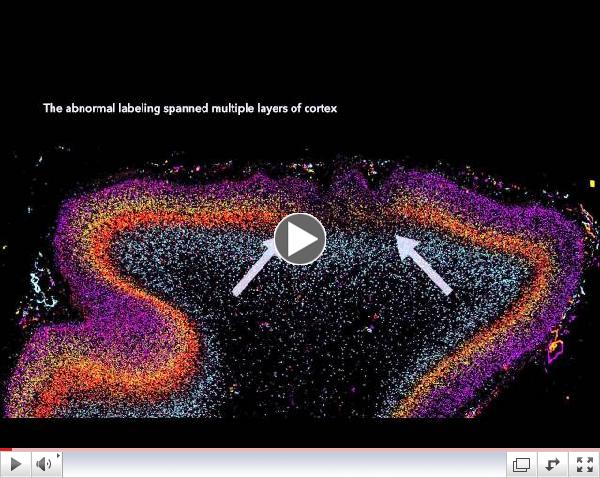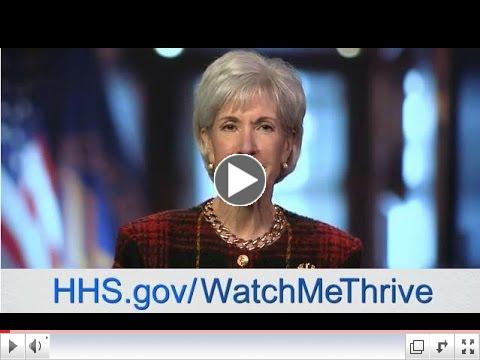|
|
 MENTAL HEALTH RESEARCH: News You Can Use!
Your source for updates on how the SC CTSI is working with the Los Angeles County Department of Mental Health and the mental health community |
|
Volume 3, Issue 1 April 30, 2014 |
|
|
|
NIMH Outreach Partnership Annual meeting
April 1-3, 2014 in Bethesda, MD
On Wednesday, April 2, 2014 Holly Kiger, RN, MN represented the Community Engagement team from SC CTSI at the NIMH Outreach Partnership meeting in Bethesda, MD. The Outreach Partnership Program is a nationwide initiative of the National Institute of Mental Health. According to their website,
"The Program works to increase the public's access to science-based mental health information through partnerships with national and state nonprofit organizations. The Program has a particular emphasis on reaching historically underserved populations. The Program also strives to enhance opportunities for the public to benefit from participation in research."
The 55 partnerships throughout the country "provide NIMH with the opportunity to engage community organizations in dialogue to better understand the needs, questions, and concerns of those intended to benefit from the research the Institute supports." To learn more about the NIMH Outreach Partnership program go to: NIMH Outreach Partnership program.
 | | NIMH Outreach Partnership Program |
At the annual meeting Ms. Kiger presented the Southern California CTSI Consortium's project, Promotora Training Institute in a poster session. Four sourthern California CTSIs and two community agencies are working together to create a curriculum to empower Promotoras (lay workers in the Hispanic community) to help educate the Hispanic population about research, to increase participation of Hispanics in clincial trials and to help promote the use of Promotores in all areas of community based research.

In addition, Ms. Kiger was on a panel: "Bringing Community Voice to the Research Process: Engaging Patients Throughout the Research Process" with Sue Sheridan, M.B.A, M.I.M, Director of Patient Engagement, Patient-Centered Outcomes Research Institute (PCORI).Ms. Kiger gave an overview of Community Engaged Research and talked about the Recovery Oriented Care Collaborative, a Practice Based Research Network which is a collaboration between SC CTSI, USC School of Social Work and NIMH Community Partner, Mental Health America and three other community based mental health agencies in Los Angeles. Their first card study, conducted in the fall of 2013, focused on evaluating outcomes from the health-mental health integration projects that were begun in July of 2011 to address the lack of access to physical health care experienced by many mentally ill consumers.
Other highlights of the NIMH Outreach Partnership annual meeting include learning about RAISE (Recovery After an Initial Schizophrenia Episode) NIMH RAISE project. A variety of materials that support team-based specialty care for early psychosis-including treatment manuals, videos, educational handouts, and worksheets-are available to assist states' efforts to initiate or expand coordinated specialty care services for youth and young adults. Dr. Lisa Dixon shared a video of a young man talking about his recovery.
 | | Ryan |
This video and other similar video segments that were created to train RAISE providers are available on this new webpage.
HIGHLIGHTS FROM APRIL 15, 2014
NIMH OUTREACH PARTNERSHIP
PROGRAM UPDATES
(see attached April 15, 2014 update for details) 
DISORGANIZED CORTICAL PATCHES SUGGEST PRENATAL ORIGIN OF AUTISM
The architecture of the autistic brain is speckled with patches of abnormal neurons, according to research partially funded by the NIMH. Published in the New England Journal of Medicine on March 27, 2014, this study suggests that brain irregularities in children with autismcan be traced back to prenatal development.
 | | Patches of Disorganization in the Neocortex of Children with Autism |
CDC ESTIMATES 1 in 68 CHILDREN HAS BEEN IDENTIFIED WITH AUTISM SPECTRUM DISORDER; LATEST SNAPSHOT SHOWS PROPORTION OF CHILDREN WITH AUTISM AND HIGHER IQ ON THE RISE
The Centers for Disease Control and Prevention (CDC) estimates that 1 in 68 children (or 14.7 per 1,000 eight-year-olds) in multiple communities in the United States has been identified with autism spectrum disorder (ASD). This new estimate is roughly 30 percent higher than previous estimates reported in 2012 of 1 in 88 children (11.3 per 1,000 eight-year-olds) being identified with an ASD. The number of children identified with ASD ranged from 1 in 175 children in Alabama to 1 in 45 children in New Jersey.
NEW RESOURCE HELPS IDENTIFY DEVELOPMENTAL DELAYS IN INFANTS AND YOUNG CHILDREN
The U.S. Department of Education and Department of Health and Human Services (HHS) announced the launch of Birth to 5: Watch Me Thrive!, a collaborative effort with Federal partners to encourage developmental and behavioral screening for children to support the families and providers who care for them. By raising awareness of child development, Birth to 5: Watch Me Thrive! will help families look for and celebrate milestones; promote universal screenings; identify delays as early as possible; and improve the support available to help children succeed in school and thrive alongside their peers.
Press Release
 | | Secretary Sebelius Announces Birth to 5: Watch Me Thrive! Initiative |


This new issue of SAMHSA News features the National Suicide Prevention Lifeline Crisis Center Follow-Up program, which supports crisis centers within Lifeline's network in systematically following up with Lifeline callers to see how they're doing, offer emotional support and tips on coping strategies, and check to ensure that they follow up with treatment referrals. The issue also explores preventing compassion fatigue among behavioral health providers in high stress environments, and limiting access to lethal means as a prevention strategy.
This guide assists behavioral health professionals in understanding the impact and consequences for those who experience trauma. It discusses patient assessment, treatment planning strategies that support recovery, and building a trauma-informed care workforce.
Increasing awareness of mental health issues and making it easier for people to seek help will take partners working together. Faith and community leaders can play a significant role in helping to educate individuals and families about mental health. These talking points can help faith leaders develop messages for their congregations and communities about the importance of mental health.
Everyone Can Play A Role in the Conversation about Mental Health

This fact sheet can help communities and congregations raise awareness about mental health issues and emphasize the importance of people to seek help when needed. It can be used as a bulletin insert or announcement to faith communities about the importance of mental health issues in communities.
A Guide To Literature on Patrial PTSD

Partial post-traumatic stress disorder (PTSD) is a term used to characterize individuals who have some symptoms of PTSD, but fail to qualify for a formal diagnosis. Many of these individuals have multiple symptoms and notable functional impairment, yet they do not have enough symptoms in the required categories to be given a full diagnosis. One of the key issues in this research is how to diagnose partial PTSD. In this latest issue of PTSD Quarterly, learn more about treatment studies, recommendations, and featured articles on this topic.

WEBINAR: Working with Families and Schools
May 7, 2014, 12:00 PM ET
Presenters in this NCTSN webinar in the Transforming Trauma in LGBTQ Youth Speaker Series will discuss how to work with families and their schools to advocate for a child or youth who identifies as LGBTQ.
SEE NEWSLETTER FOR ADDITIONAL WEBINARS
IN MAY AND JUNE.

NATIONAL PREVENTION WEEK 2014
May 18-24, 2014
National Prevention Week is a SAMHSA-supported annual health observance dedicated to increasing public awareness of, and action around, substance abuse and mental health issues. The theme of National Prevention Week 2014 is Our Lives. Our Health. Our Future. SAMHSA be highlighting the important role everyone has in maintaining a healthy life and ensuring a productive future. A video is available to promote the week. | |
|
|
|
|
MENTAL HEALTH RESEARCH: News You Can Use! is produced by the SC CTSI Community Engagement program. For questions or information, please contact Holly Kiger, RN, MN, CNS.
|
|
|
|
|
|